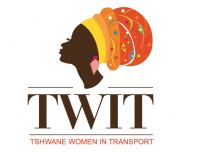News
In the face of global efforts to cap carbon emissions and halt the depletion of finite natural resources, a global energy transition is imperative. The CSIR recently delivered a presentation on energy transition in South Africa to the Portfolio Committee on energy and mineral resources in which CSIR Energy Centre Head, Dr Clinton Carter-Brown emphasised that although South Africa is well positioned to lead an energy transition to more sustainable sources of energy, coal will remain part of our energy mix well into 2050.
For centuries, the world’s indigenous communities have developed climate change mitigation practices that have sustained countless generations. A compendium containing some of these practices will be launched during the Stockholm International Water Institute World Water Week taking place between 25 and 30 August 2019. These age-old practices have been identified as having the potential to be strengthened through modern science.
As Africa’s world-class research and development organisation, the CSIR has made a collaborative effort to provide training to Botswana’s biotechnology students, in order to advance the country’s bioprocessing industry.
The course is part of a new initiative under CSIR Future Production: Chemicals that focuses on industry specific training and development. It is designed to bridge the gap between the research and commercialisation of technology and is directed towards establishing and stimulating growth in bio-based industries in Africa.
The Institute of Electrical and Electronics Engineers (IEEE) has awarded South Africa’s IEEE section the prestigious 2019 MGA Outstanding Medium Section Award.
CSIR remote sensing specialists studied satellite imagery of South Africa’s savanna system over the period 2001 to 2018 which showed that as the climate became drier, farms were abandoned, which in turn led to an increase in tree cover.
“The grass-tree co-existence of the Savanna is crucial to the provision of important ecosystem services, including grazing and browsing resources to livestock and wildlife; and the provision of food and medicinal plants to the human community,” says CSIR remote sensing specialist, Dr Moses Cho.
The CSIR’s Dr Patience Mthunzi-Kufa is leading the charge in developing laser-based diagnostic tools to detect HIV and tuberculosis, as well as to screen for substandard medicine. As research group leader of the CSIR’s biophotonics group, Mthunzi-Kufa led the team whose research has now been published in the Journal of Biophotonics and cited in the Advanced Science News, an online library that highlights new and exciting developments from across a broad spectrum of scientific disciplines.

The Tshwane Women in Transport (TWIT) announced its partnership with HERE Technologies – leaders in digitised mapping and pioneers of in-car navigation systems since 1985 – by launching the digital mapping programme at the CSIR recently.
Addressing TWIT members at the launch, City of Tshwane Member of Mayoral Committee for Roads and Transport Councillor Lynn Senkubuge said by engaging women and men, together, towards gender equality ‘South Africans will make it happen’.
Call for applications
The Department of Science and Innovation (DSI) and the Council for Scientific and Industrial Research (CSIR) invite applications for a bursary under the DSI-CSIR Inter-Bursary Support (IBS) Programme grant scheme.The IBS postgraduate bursary is intended for full-time studies at any South African public university. Read more...
Proposals are hereby invited for the following two separate and independent elements within the RISP.
- Document to download
- Guidelines to download

